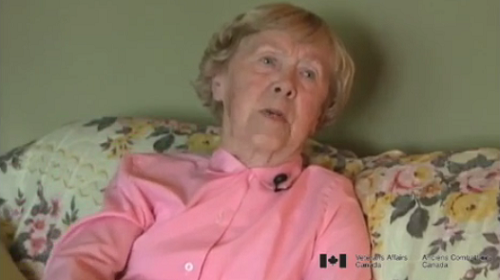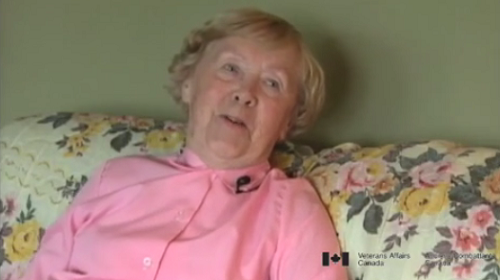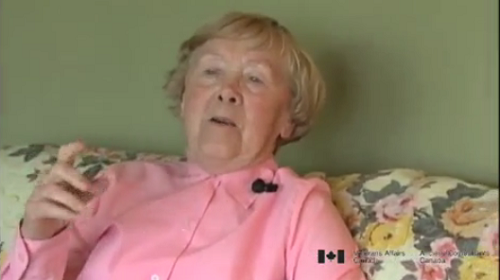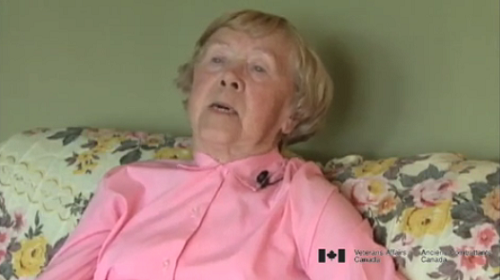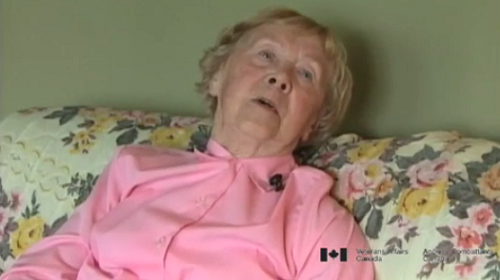Torpedoed!
Heroes Remember
Torpedoed!
Transcript
Description
Ms. Whittaker discusses the events prior to, during, and immediately after the aerial torpedoing of the SS Santa Helena. She gives a detailed account of how the ship's crew kept passengers calm while moving them to lifeboat stations, for which she offers them high praise.
Geraldine Whittaker
Geraldine Whittaker was born on March 12, 1915 in Trinity Bay, Newfoundland. Her father was the local doctor, and she would accompany him on his rounds. Ms. Whittaker decided to become a nurse after graduating from school, entering the nursing program at Montreal General Hospital. In 1937, after three years of training, she decided to enlist in the Royal Canadian Army Medical Corps. After war was declared, Ms. Whittaker went to England where she served in hospitals at Farnborough and Horley. She was deployed to North Africa, but her ship was torpedoed in the Mediterranean Sea. Rescued personnel were landed in Naples, Italy. Ms. Whittaker served in a hospital in nearby Caserta for eight months. She volunteered for service in France, was transferred there, and later served in Belgium and Holland. After her return to Newfoundland, Ms. Whittaker continued her nursing career.
Meta Data
- Medium:
- Video
- Owner:
- Veterans Affairs Canada
- Duration:
- 2:56
- Person Interviewed:
- Geraldine Whittaker
- War, Conflict or Mission:
- Second World War
- Branch:
- Army
- Units/Ship:
- Royal Canadian Army Medical Corps
- Rank:
- Lieutenant
- Occupation:
- Nurse
Related Videos
- Date modified:





